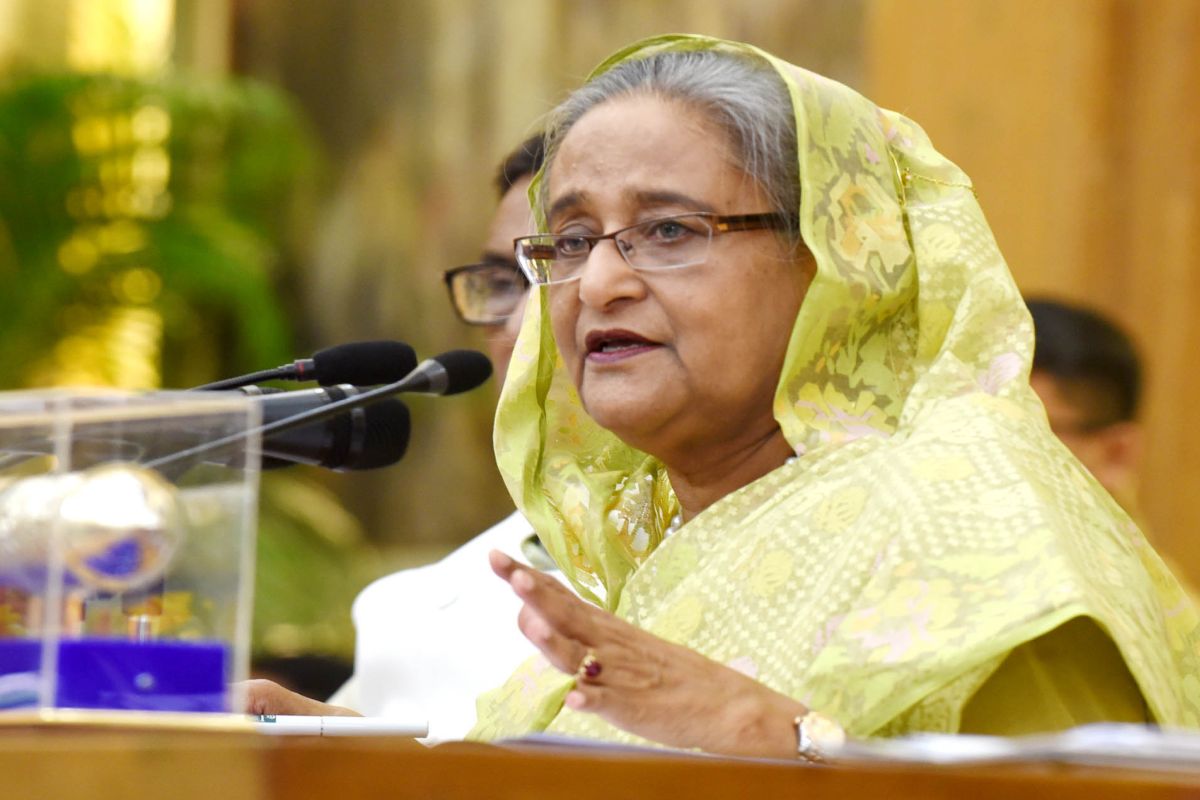In a significant political development, Bangladesh’s Prime Minister Sheikh Hasina secured her fourth consecutive term in office, marking a new chapter in the nation’s political history. Her party, the Awami League, triumphed in the elections, capturing two-thirds of the seats, despite sporadic incidents of violence and a boycott by the main opposition party, the Bangladesh Nationalist Party (BNP), and its allies. The election results reaffirmed Hasina’s stronghold in the 300-member Parliament, with her party winning 200 seats. The electoral process, held on a Sunday, is still undergoing vote counting, but preliminary results clearly indicate the Awami League’s victory, as confirmed by the Election Commission’s spokesperson.
Hasina’s Remarkable Victory in Gopalganj
Prime Minister Sheikh Hasina’s political acumen was on full display in the Gopalganj-3 parliamentary seat, where she achieved an overwhelming victory, receiving 249,965 votes. Her nearest rival from the Bangladesh Supreme Party, M. Nizam Uddin Laskar, secured a mere 469 votes. This victory marks Hasina’s fifth term as Prime Minister, a role she has held since 2009, and her fourth consecutive term, showcasing her enduring influence in Bangladeshi politics.
The Awami League’s Stance on Electoral Participation
The Awami League’s General Secretary, Obaidul Quader, emphasized the people’s rejection of the BNP and Jamaat-e-Islami’s boycott of the elections. Quader extended his gratitude to those who braved threats of violence and terrorism to participate in the 12th National Parliamentary Elections, underlining the resilience of Bangladesh’s democratic spirit.
Election Turnout and Peaceful Voting
The Chief Election Commissioner, Kazi Habibul Awal, revealed that initial estimates put voter turnout at around 40%, a figure subject to change. This is in stark contrast to the over 80% voter turnout in the 2018 general elections. Despite the largely peaceful voting process, authorities and media reported incidents of arson at at least 18 locations nationwide, including ten targeting polling stations, on the eve of the election.
BNP’s Boycott and Future Strategies
The BNP, led by former Prime Minister Khaleda Zia, announced its plan to intensify anti-government protests through peaceful public engagement programs starting Tuesday. The party’s decision to boycott Sunday’s elections, labeling them as ‘fraudulent’, follows their previous boycott in 2014 and participation in the 2018 elections. Alongside 15 other political parties, the BNP’s boycott was part of a broader strategy to demonstrate the election’s low turnout as a sign of their successful campaign. The party plans to escalate peaceful democratic protest activities, reinforcing the citizens’ right to vote.
Nationwide Strike and Political Tensions
During this period, the BNP also initiated a 48-hour nationwide strike, beginning on Saturday morning and concluding on Monday. This strike was a call to voters to abstain from the elections, marking the start of what they termed the end of the ‘fascist government’.
Election Commission’s Response to Violence
Earlier, an Election Commission spokesperson acknowledged the scattered incidents of violence, noting that security measures were heightened to ensure a smooth electoral process. The Commission’s proactive approach aimed to safeguard the integrity of the elections and the safety of voters amidst these challenges.
The Road Ahead for Bangladesh
The conclusion of these elections opens a new chapter in Bangladesh’s political narrative. As Sheikh Hasina embarks on her fifth term, the country looks forward to stability and progress under her experienced leadership. However, the opposition’s stance and the lower voter turnout present challenges that need to be addressed to strengthen the nation’s democratic foundations. The coming years will be crucial in defining Bangladesh’s trajectory, balancing political aspirations with the imperative of national unity and development.
Disclaimer : इस न्यूज़ पोर्टल को बेहतर बनाने में सहायता करें और किसी खबर या अंश मे कोई गलती हो या सूचना / तथ्य में कोई कमी हो अथवा कोई कॉपीराइट आपत्ति हो तो वह jansandeshonline@gmail.com पर सूचित करें। साथ ही साथ पूरी जानकारी तथ्य के साथ दें। जिससे आलेख को सही किया जा सके या हटाया जा सके ।














